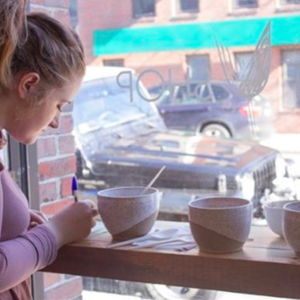I have always been interested in how much food can impact people—be it a favorite recipe, the camaraderie during a meal, or the exploration of a new cuisine. That being said, I never fully understood how important one meal could be to a person until I went out for dinner one night in France.
The summer after my freshman year my family and I went to a “bull game” in an ancient Roman arena in Arles, France. Bull games are like bull fights but don’t result in the death of the animal at the end. Rather, the bull has ribbon tied to its horns and is placed in a ring with a group of men that try to get the ribbon off the bull’s horns.
At the time, I was one year into my cultural anthropology major, and I thought it would be a great opportunity to explore something completely foreign to me. Little did I know how challenging that night would become.
The bull game—though no bulls were fatally wounded—was hard to watch for a first time viewer. Inexperienced bulls were clearly agitated and confused. At one point a young bull was injured and the round was cut short. It got so bad for me that I had to go to the bathroom to compose myself.
The Meal
After the bull game my family and I went to a Balkan restaurant that was right next to the arena. We had been gorging ourselves on French and Italian food for the past week so we decided we’d switch it up that night.
Looking at the menu, I already knew the night wasn’t going to get any easier. I had been strictly pescatarian for the prior months and the menu was filled with all things meat—with most of the options involving beef.
I had become pescatarian partially because I don’t like touching raw meat and partially for ethical reasons. The weight of the memory of the bull game, combined with the fact that I couldn’t find anything on this menu, was almost too much for me.
After lengthy deliberation, I decided that I would bite the bullet and get the beef goulash. I figured that in my studies I’d most likely have to eat meat and that now was as good of a time as any to try to see if I could handle that small of a hurdle.
When I finally ordered the goulash I was told in halting English that the kitchen was out of beef and that they were using bull that night, and if I was okay with that.
After hearing about the ingredient change, my mother decided bull would be too much for her that night, and she ordered the chicken. I, however, was deep in an internal panic.
At this moment, I wasn’t quite sure what to do. If I wanted to study different cultures, could I handle getting this uncomfortable? Up until that point I had only read that I would encounter moments like this but I had never been exposed to something quite so uncomfortable.
The Impact
Being able to separate personal feelings from what you’re observing and taking part in is intrinsic to anthropology, and at that moment I wasn’t sure if I could do it. With the arena yards away, I thought back to the young bull we had seen earlier that day.
But then I thought of where I was and what I was hoping to do with my life. If I couldn’t do this now, what would I do? I couldn’t picture myself doing anything else with my life, and I couldn’t let one bowl of bull goulash break the dreams I had had for years.
So—with the waiter in my parents looking at me expectantly—I heard myself say, “that’s okay with me, I’ll have the goulash please.” My parents stared at me wide eyed. Even I was surprised by myself a little.
So I ate the goulash. Was it the best thing I’ve ever eaten? No, but it definitely will be one of the most important meals I will ever eat. That one meal gave me a real world experience, a microcosm of what I would be exposed to if I were to continue on with anthropology.
And I have continued with anthropology, in fact this year I am the President of my school’s anthropology club. At that meal I took a step that I didn’t know I would be making that day, but going to bed that night I already felt a little bit more like an anthropologist.


